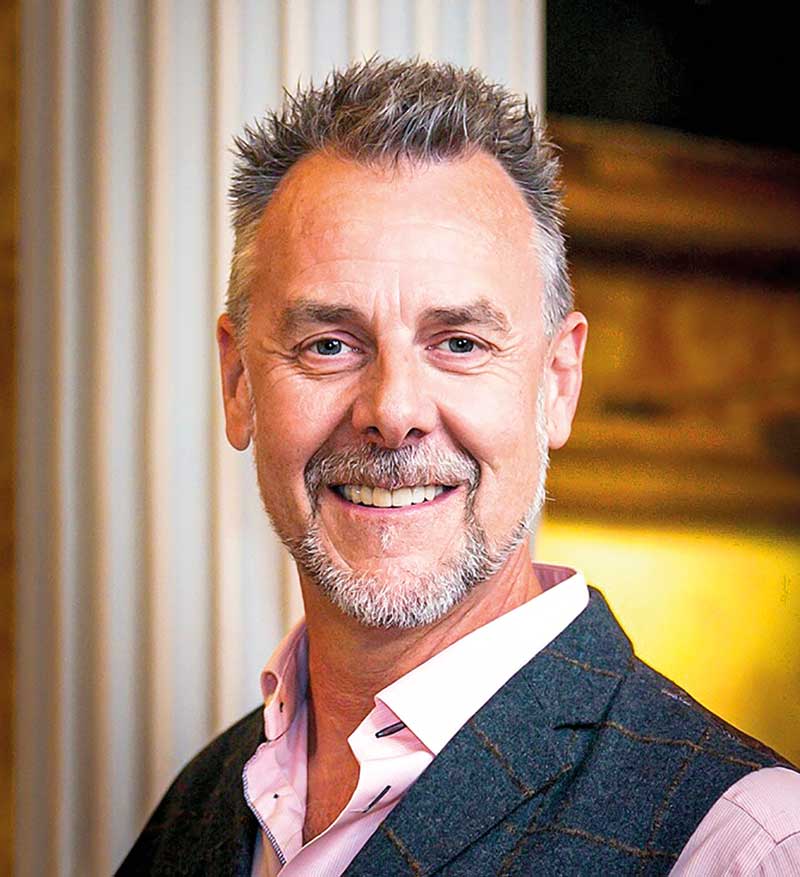SUPPORTING COLLABORATION BETWEEN DENTAL PROFESSIONALS. BY MARK AMBRIDGE. CDT Leave a comment
Mark Ambridge was recently appointed as the Director for Dental Technicians at the BACD. He explains his motivation for joining the Academy and why other dental technicians can benefit from doing so as well: “I’ve worked closely with one of the BACD Past Presidents, Dr Donald Sloss, for over 30 years. He always saw me as a forward-thinking dental technician with an interest in the cosmetic aspect of dental technology. He suggested that the BACD would be a great community for me to get involved with, so I joined the Academy many years ago not only to be able to support Donald, but also to further my individual style of work with other likeminded dental professionals.
“As an incredibly valuable and professionally run organisation, the BACD steps into the middle ground of general dentistry and guides those in the profession who wish to progress and provide the exceptional cosmetic dentistry that we see all the time on TV, film and social media. Therefore, the BACD is instrumental in maintaining high standards of practice, particularly in regard to the many elective dental procedures we now have. It provides access to national educational programmes presented by internationally recognised and respected experts from the field who are considered to be at the top of their game by their peers. This helps further the education of dental professionals, enabling them to augment workflows, strengthen working relationships, and provide high-end cosmetic dental treatments that many of today’s patients seek.
“Additionally, the BACD helps improve professionals’ exposure to the trade, through its events. Dental technicians who are too busy to attend specific trade-shows, or are in the market for new materials or equipment, only have access to company representatives armed with brochures. Therefore, being able to browse a mini tradeshow at a BACD event – where you can also benefit from valuable learning and CPD opportunities – is especially important and useful for busy dental technicians.”
Looking to the year ahead, Mark hopes to invite world-renowned dental technicians and other relevant leaders from the dental technology field onto the BACD educational programme, making these speakers more accessible. He explains: “My aim is to offer access to more BACD educational events across the UK that are relevant to dental technicians, which should facilitate better communication with the dentists they support. We at the BACD want dental technicians to reap the rewards of education that they can put into practice in a day-to-day laboratory setting. For this reason, I’m also hoping to introduce and promote a special BACD membership scheme for dental technicians, so that they benefit from greater value membership.”
Mark believes that treatment cannot be completed to the high aesthetic standards that the dentist is looking for if the dental technician is not involved in the process.
“We can all agree that the patient is the most important element to the success of treatment,” he says, “but it is also vital that the dentist and the dental technician work together. There has to be effective communication between these professionals. The dental technician typically remains in the laboratory and will often just receive a prescription with a patient’s name on it, although nowadays they may get digital images or video footage. They might even be lucky to meet the patient in the flesh for consultations about their restoration shade, shape and texture. However, this should happen more and more if the outcome of treatment that the patient expects is going to be achieved as the dentist has suggested.
“The BACD can help facilitate and support working relationships within dentistry by bringing dentists and dental technicians together at educational events, where these professionals can learn so much more from each other and further their understanding of dental procedures. There are a handful of dental technicians that regularly attend BACD events at the moment, as these sessions aid in demonstrating what dentists are expecting to achieve with treatment. However, with the introduction of the PDP in the CPD process, access to balanced and targeted education is now more important than ever. That’s why I hope to encourage dental technicians to accompany their dentists to BACD educational events that they wouldn’t normally attend, where both professionals can then learn something outside of their usual range of knowledge.
“This can add enormous value to treatment when engaging with patients – the dentist will be much better informed about what is involved with the procedure, particularly in relation to lab processes. We’re lucky at my lab as we often meet patients who are sent to us by their dentist. Once they see for themselves that their restorations are skilfully handmade, these patients are blown away and suddenly appreciate the value of their bespoke treatment.”
Dentists are highly dependent on effective collaboration with their dental technicians in order to deliver the best possible care. Mark adds: “The closer the synergy between dentists and dental technicians, the better the outcome of treatment provided to patients. This is what the BACD is all about – creating beautiful, natural-looking smiles that patients deserve.”
If you are a dental technician looking to take advantage of the educational and networking opportunities provided by BACD membership, contact the Academy today.
For further enquiries about the British Academy of Cosmetic Dentistry, visit: www.bacd.com




